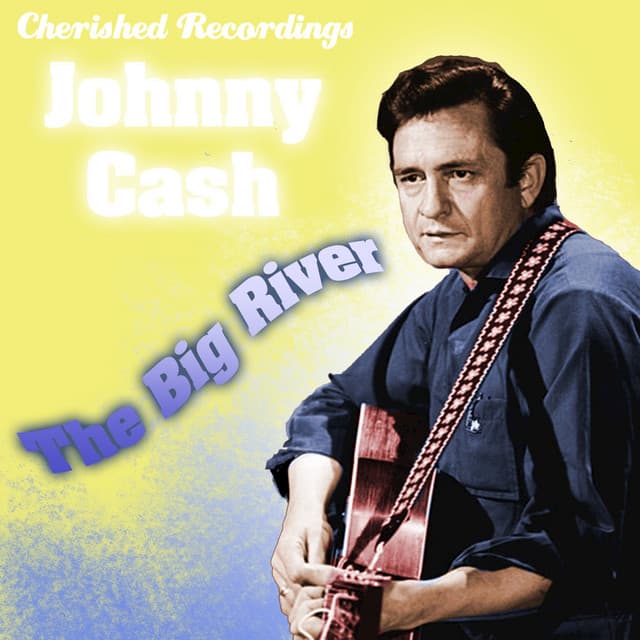
A tale of relentless, agonizing pursuit down the American river of destiny and despair.
When you think of the bedrock of American music, that essential sound that captured both the defiant spirit and the deep melancholy of the country, you must inevitably conjure the image of Johnny Cash. His voice—a low, resonant rumble that sounded like it had weathered every storm—gave life to ballads of outlaws, working men, and, most powerfully, lost love. Among his earliest and most enduring classics is “Big River,” a track that feels less like a simple song and more like a fevered, cross-country chase etched onto vinyl.
Released by Sun Records in March 1958, “Big River” arrived at a pivotal moment for both Cash and American popular music, solidifying his star power. It’s a quintessential example of the rockabilly pulse of the era, though tinged with the unmistakable country sincerity that would always define the Man in Black. This raw, driving energy propelled the single to an impressive peak position of #4 on the Billboard country music charts, where it stayed for a formidable 14 weeks. It also crossed over, hitting #14 on the Billboard Hot 100, proving the track’s wide-ranging appeal.
The brilliance of “Big River” lies in its narrative—a beautifully structured, almost cinematic story penned entirely by Johnny Cash himself. It recounts the agonizing, mile-by-mile chase of a fickle lover who has left the protagonist heartbroken. The narrator follows her trail along the entire length of the Mississippi River, from its approximate starting point in St. Paul, Minnesota, all the way down to its mouth near New Orleans, Louisiana. It is an epic pursuit, one where the great river becomes a central, living character, sometimes a guide, and sometimes a rival.
This relentless rhythm is driven by the iconic ‘boom-chicka-boom’ style of guitarist Luther Perkins, whose signature two-note bass riff anchors the entire frantic journey. The production, helmed by Sam Phillips and Jack Clement at Sun, gives the recording an immediate, stripped-down authenticity that perfectly matches the desperate urgency of the lyrics.
The meaning of the song is layered. On the surface, it’s about a man’s foolish, yet understandable, refusal to give up on a woman. But for those of us who grew up with this music, it speaks to something deeper: the American instinct for motion, the idea that you can outrun your pain by simply driving further down the road. The man’s chase is a classic ‘fool’s errand,’ a Sisyphean effort that we recognize in our own younger, more reckless selves. As he names city after city—St. Paul, Davenport, St. Louis, Memphis, Baton Rouge, New Orleans—you don’t just hear the words; you see the grainy images of gas stations, endless blacktop, and the shimmering, daunting expanse of the “Big River.” The lament in the final verse, where he resigns himself to the fact that his heart is now tied to the river itself—”She loves you, Big River, more than me”—is a truly poetic surrender to fate and the sheer size of the American landscape. It’s a moment of profound, painful beauty, reminding us all of the loves that got away, swallowed by the current of time and circumstance. It’s the kind of song that, when you hear it again, brings back the scent of old leather, the warmth of a vinyl record, and the sharp, clear ache of being young and in love.